In case you are familiar with Task<T> or Promise<T> and the async/ await pattern, then you can skip right to the "How to use a Future with the widgets in Flutter" section.
What is a Future and how do I use it?
Well, the documentation says:
An object representing a delayed computation.
That is correct. It's also a little abstract and dry. Normally, a function returns a result. Sequentially. The function is called, runs and returns it's result. Until then, the caller waits. Some functions, especially when they access resources like hardware or network, take a little time to do so. Imagine an avatar picture being loaded from a web server, a user's data being loaded from a database or just the texts of the app in multiple languages being loaded from device memory. That might be slow.
Most applications by default have a single flow of control. When this flow is blocked, for example by waiting for a computation or resource access that takes time, the application just freezes. You may remember this as standard if you are old enough, but in today's world that would be seen as a bug. Even if something takes time, we get a little animation. A spinner, an hourglass, maybe a progress bar. But how can an application run and show an animation and yet still wait for the result? The answer is: asynchronous operations. Operations that still run while your code waits for something. Now how does the compiler know, whether it should actually stop everything and wait for a result or continue with all the background work and wait only in this instance? Well, it cannot figure that out on it's own. We have to tell it.
This is achieved through a pattern known as async and await. It's not specific to flutter or dart, it exists under the same name in many other languages. You can find the documentation for Dart here.
Since a method that takes some time cannot return immediately, it will return the promise of delivering a value when it's done.
That is called a Future. So the promise to load a number from the database would return a Future<int> while the promise to return a list of movies from an internet search might return a Future<List<Movie>>. A Future<T> is something that in the future will give you a T.
Lets try a different explanation:
A future represents the result of an asynchronous operation, and can have two states: uncompleted or completed.
Most likely, as you aren't doing this just for fun, you actually need the results of that Future<T> to progress in your application. You need to display the number from the database or the list of movies found. So you want to wait, until the result is there. This is where await comes in:
Future<List<Movie>> result = loadMoviesFromSearch(input);
// right here, you need the result. So you wait for it:
List<Movie> movies = await result;
But wait, haven't we come full circle? Aren't we waiting on the result again? Yes, indeed we are. Programs would be utterly chaotic if they did not have some resemblence of sequential flow. But the point is that using the keyword await we have told the compiler, that at this point, while we want to wait for the result, we do not want our application to just freeze. We want all the other running operations like for example animations to continue.
However, you can only use the await keyword in functions that themselves are marked as async and return a Future<T>. Because when you await something, then the function that is awaiting can no longer return their result immediately. You can only return what you have, if you have to wait for it, you have to return a promise to deliver it later.
Future<Pizza> getPizza() async {
Future<PizzaBox> delivery = orderPizza();
var pizzaBox = await delivery;
var pizza = pizzaBox.unwrap();
return pizza;
}
Our getPizza function has to wait for the pizza, so instead of returning Pizza immediately, it has to return the promise that a pizza will be there in the future. Now you can, in turn, await the getPizza function somewhere.
How to use a Future with the widgets in Flutter?
All the widgets in flutter expect real values. Not some promise of a value to come at a later time. When a button needs a text, it cannot use a promise that text will come later. It needs to display the button now, so it needs the text now.
But sometimes, all you have is a Future<T>. That is where FutureBuilder comes in. You can use it when you have a future, to display one thing while you are waiting for it (for example a progress indicator) and another thing when it's done (for example the result).
Let's take a look at our pizza example. You want to order pizza, you want a progress indicator while you wait for it, you want to see the result once it's delivered, and maybe show an error message when there is an error:
import 'package:flutter/material.dart';
void main() {
runApp(MyApp());
}
/// ordering a pizza takes 5 seconds
/// and then gives you a pizza salami with extra cheese
Future<String> orderPizza() {
return Future<String>.delayed(
const Duration(seconds: 5),
() async => 'Pizza Salami, Extra Cheese');
}
class MyApp extends StatelessWidget {
@override
Widget build(BuildContext context) {
return MaterialApp(
theme: ThemeData.dark(),
home: Scaffold(
body: Center(
child: PizzaOrder(),
),
),
);
}
}
class PizzaOrder extends StatefulWidget {
@override
_PizzaOrderState createState() => _PizzaOrderState();
}
class _PizzaOrderState extends State<PizzaOrder> {
Future<String>? delivery;
@override
Widget build(BuildContext context) {
return Column(
crossAxisAlignment: CrossAxisAlignment.center,
mainAxisAlignment: MainAxisAlignment.spaceEvenly,
children: [
ElevatedButton(
onPressed: delivery != null
? null
: () => setState(() {
delivery = orderPizza();
}),
child: const Text('Order Pizza Now')
),
delivery == null
? const Text('No delivery scheduled')
: FutureBuilder(
future: delivery,
builder: (context, snapshot) {
if(snapshot.hasData) {
return Text('Delivery done: ${snapshot.data}');
} else if(snapshot.hasError) {
return Text('Delivery error: ${snapshot.error.toString()}');
} else {
return const CircularProgressIndicator();
}
})
]);
}
}
This is how you use a FutureBuilder to display the result of your future once you have it.

